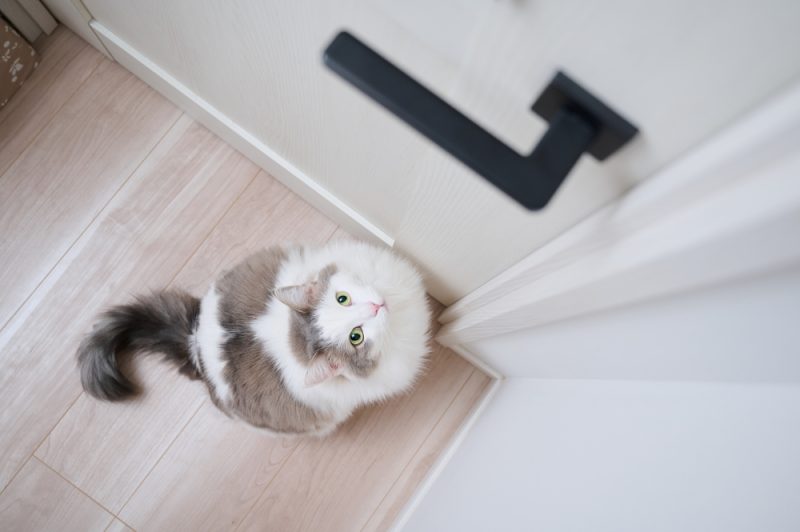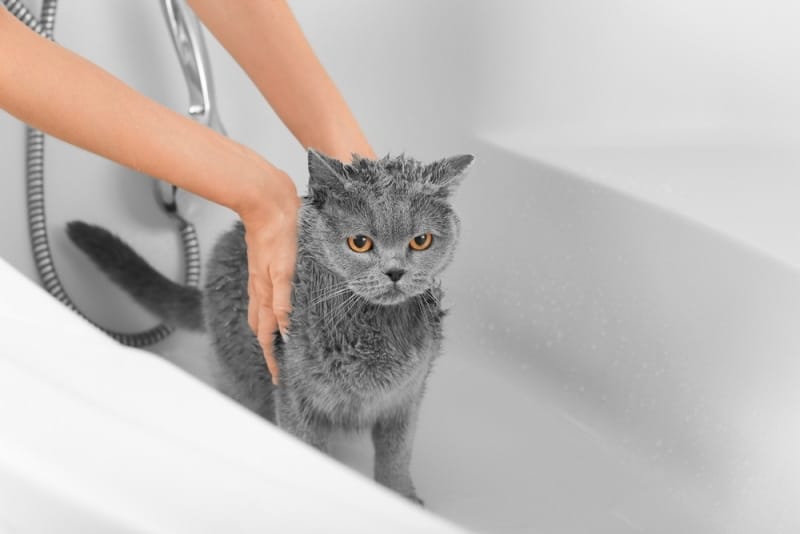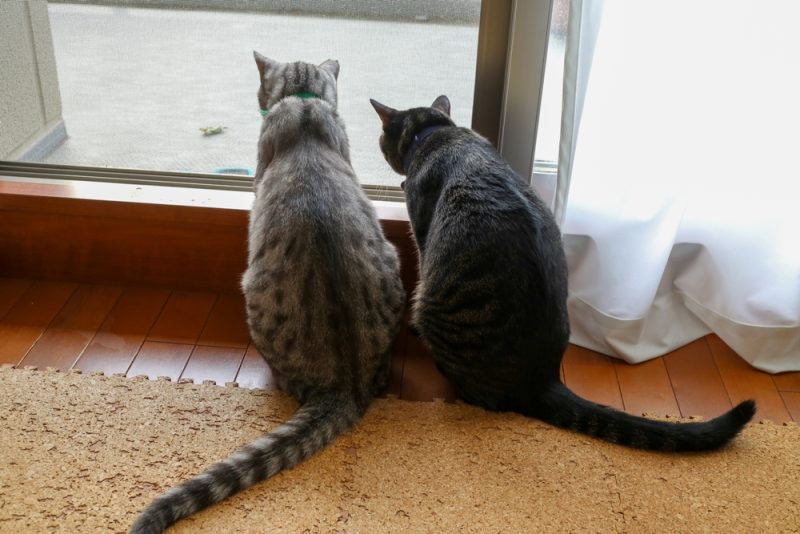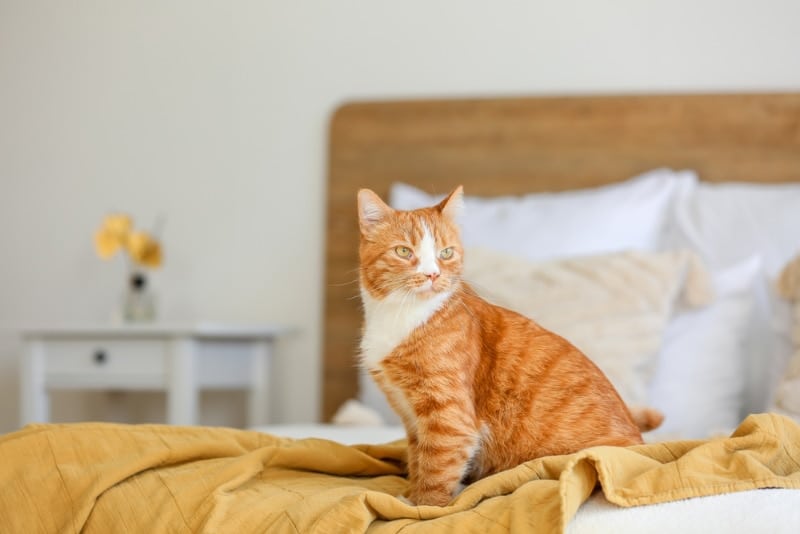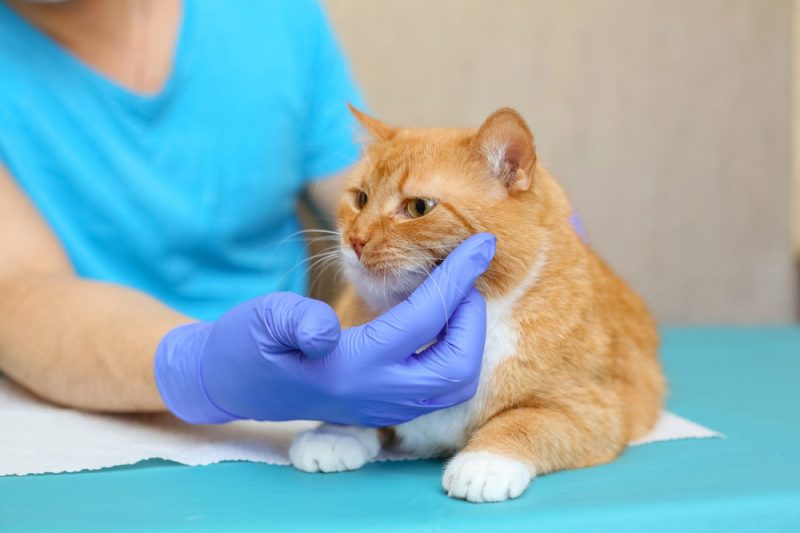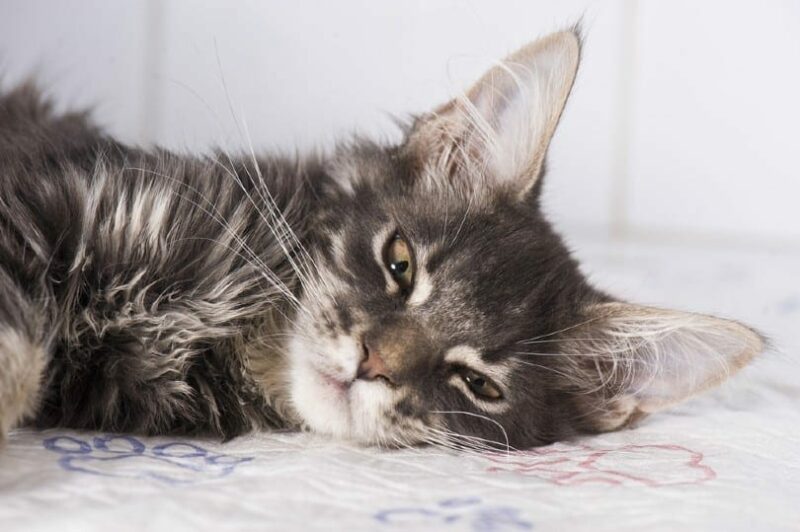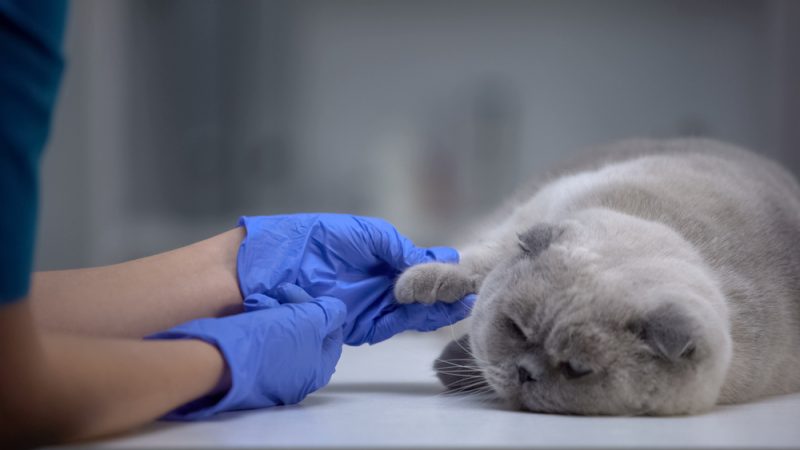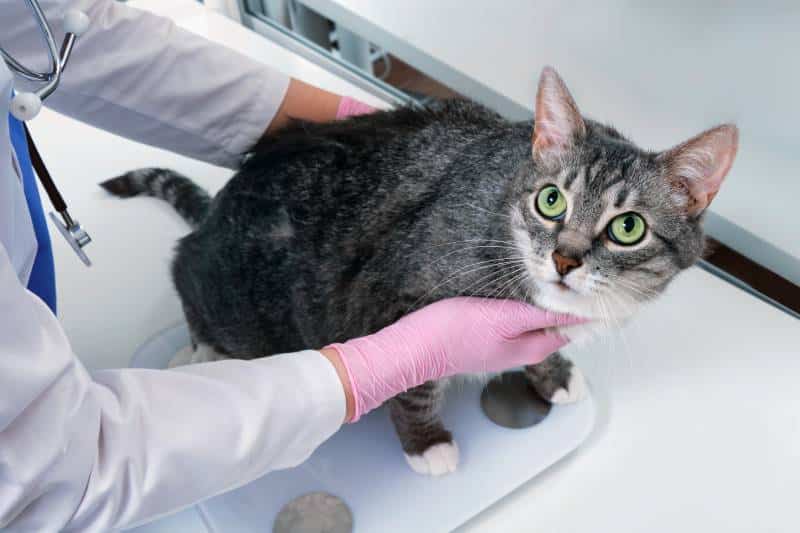Our beloved feline friends absolutely love to do things that we really don’t want them to do. Although it may seem like they do it on purpose, that is rarely the case! This can include going into places that you would prefer they didn’t, which could be a basement with dangerous chemicals, a room with all kinds of expensive collectibles, or even your bedroom at night. It goes without saying that all harmful and toxic substances and dangerous objects should be kept well out of your cat’s reach and in secure and safely closed storage.
So, if you’re wondering how to keep your cat out of a room, you’ve come to the right place, as we go over 10 different safe methods to accomplish just this.

The 10 Ways to Keep a Cat Out of a Room
1. Shut That Door!
This is an obvious yet effective method to keep a cat out of a room. You’ve probably already been doing this, and your cat has found other ways of sneaking in, which is why you’re reading this article. But humor us as we highlight the importance of keeping the door closed.
Make a point of entering and exiting the room and quickly shutting the door behind you, but also being mindful where your cat is. If they try to follow you without you acknowledging them, this can lead to injuries, such as their paw or tail getting trapped and injured by the door. You can use treats and cat toys to distract your cat if necessary. If your cat is old or not very agile, you could probably get away with a baby gate or purchase a pet gate, which might be a little taller.
If you don’t actually have a door, you could either install one or look into placing a barrier that will prevent your cat from entering the room.
2. Understand Your Cat’s Behavior
If you notice your cat meowing at a certain door, whether you’re in the room or not, try to understand why they want to enter that particular room. It may be that they only want to enter it if you are in there, or there is something that draws them to the room if they want to explore it further, particularly if they haven’t spent much time there. There could be a strange noise or smell from the room that attracts your cat’s interest.
Understanding their motivations may help in order to try and redirect them to another room or activity.
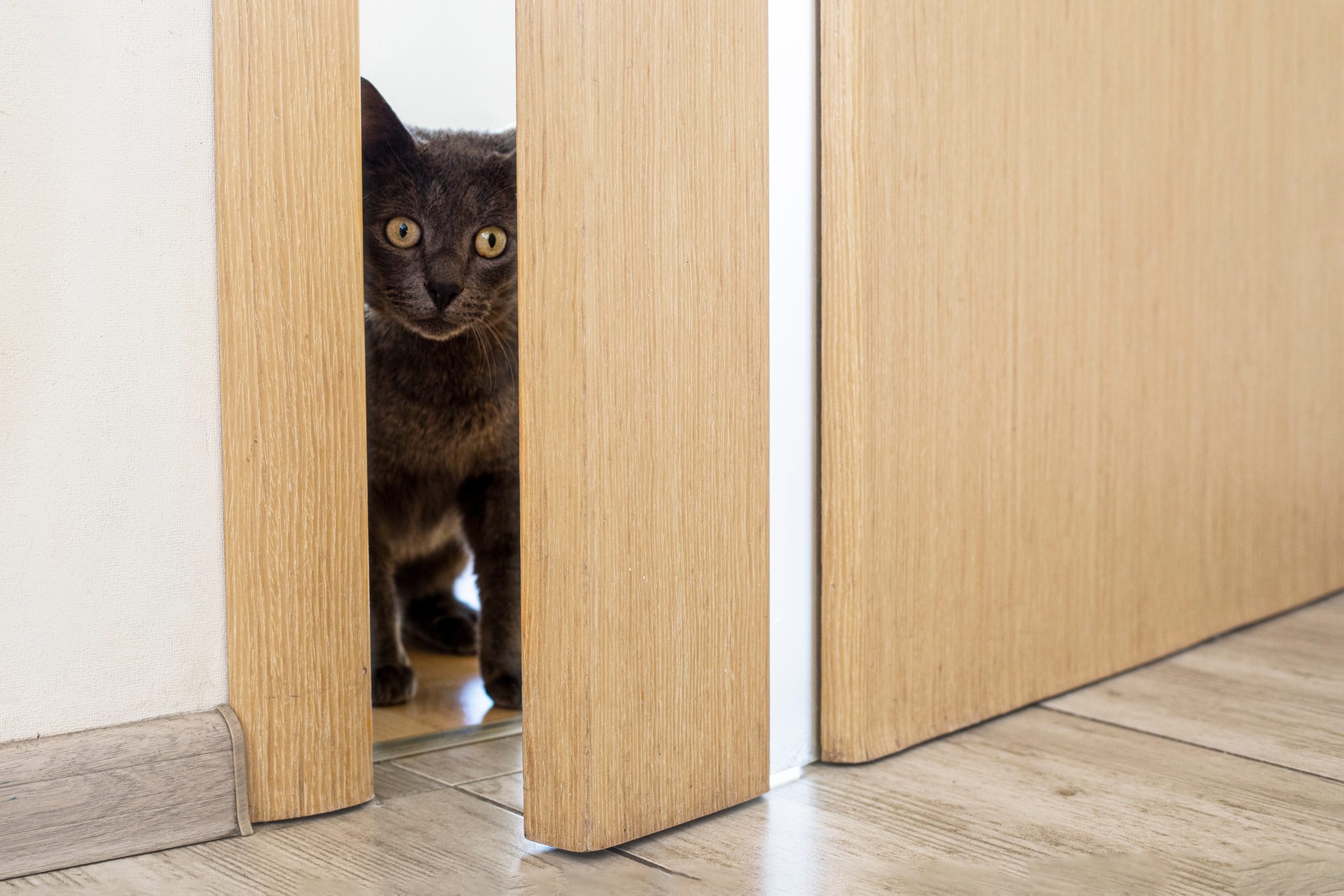
3. Do Not Reward the Behavior You Wish to Avoid
It can be hard to ignore your cat meowing or pawing at a certain door, but in most cases, if they are left without giving them attention for just a few minutes, they are likely to lose interest, particularly if they are distracted by other activities. Of course, if your cat is distressed or does not stop meowing, stop ignoring this behavior, as it may also indicate an underlying issue, such as stress, pain, anxiety, and fear. Ignoring it can only lead to frustration and a build-up of negative emotions.
If your cat loses interest and goes back to another room or engages in a different activity all on their own, reward this behavior with praise, treats, cuddles, attention, or playtime.
If they do manage to get into the room but you pay them no attention to begin with, instead just supervise their behavior, as they’ll likely get bored and quickly find something else to do. You can also interest them with toys outside the room, so they redirect their attention elsewhere.
4. Consider a Pet-Safe Scent Deterrent
There are ways to make the door unattractive to help keep cats out of a room. Felines naturally dislike a variety of different scents that, if placed on or near a door, may make them avoid it completely. However, some cats may not be stopped by this, and it’s important to never use products such as essential oils or plants that are harmful or toxic to cats.
- Citrus (lemon, orange, lime, and grapefruit)
- Vinegar
You can make your own citrus, lemon, or vinegar spray, or leave the citrus peels at the base of the door to see if this does the trick. There are also commercial cat-safe sprays you can buy, as well as pheromone sprays and diffusers that are designed to calm and reassure your cat, reducing stress and anxiety and minimizing unwanted behaviors.
5. Use a Touch Deterrent
Cats are known to dislike the sensation of their paws sticking to things. If your cat is constantly scratching at the door, you could put tape designed to prevent cats from sharpening their claws on surfaces on the door. You can also use regular double-sided tape or just make your own using packing tape (or any other tape you might have on hand).
You can also tape aluminum foil to the door or tape it to the floor in front of the room, so they’ll want to avoid those areas. However, avoid using any of these as deterrents if your cat tends to chew on everything, as they may eat it. This can lead to a gastrointestinal blockage that needs urgent veterinary attention.
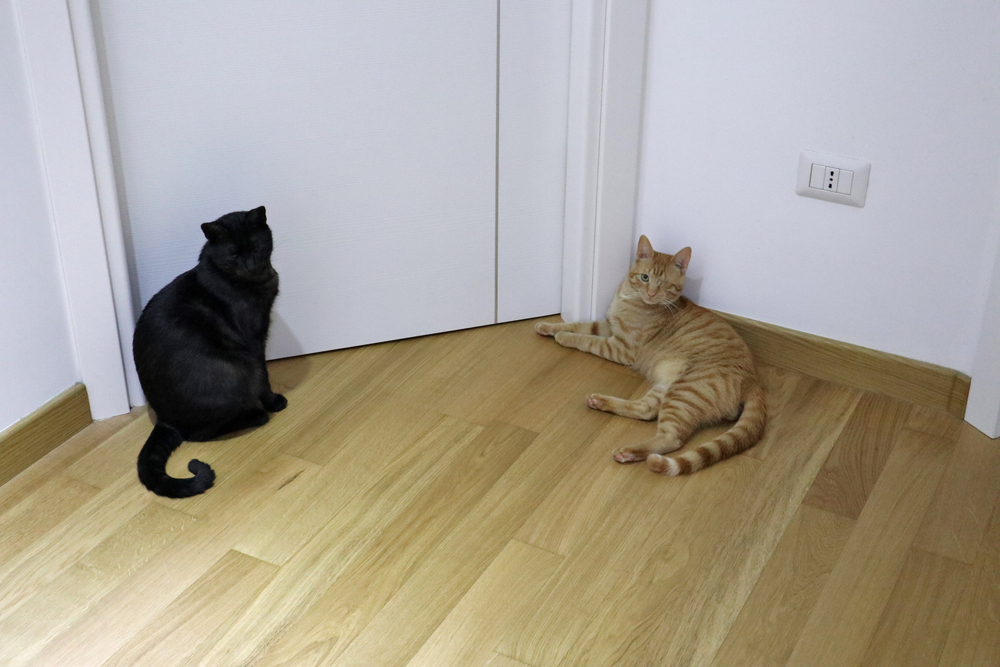
6. Redirect and Distract Your Cat
When your cat starts obsessing over the room, you can try playing with them as a way to distract them. You should invest in setting up a space for them that is essentially cat-enriched, with plenty of places to climb and scratch, high perches, and toys. If they have their own comfortable space, they might be happy to spend time there and be less worried about the room they aren’t allowed to go into.
Be sure to spend lots of time with your cat in their space and make a fuss over them (if they’re the kind of cat that appreciates a fuss). Give them treats, play with them, and make this space as appealing and special as you can.
Looking for toys that will cater to the many needs of your cat? The Hepper Hi-lo Cat Scratcher is one of our favorite cat products, and it will encourage your cat to get active. Its clever three-angle design offers multiple ways for your cat to climb, stretch, and exercise. Made of a sturdy plywood base and a replacement cardboard insert, this scratcher is an option that cats can enjoy for years to come. If your cat requires a little encouragement for self-play, the Hepper Catnip Mice Toy Set is a fantastic choice for their instinctual needs. Made with natural, bite-resistant hessian fabric and filled with organic catnip. Cats can satisfy their natural prey instincts while getting the physical activity they need to thrive. At Catster, we've admired Hepper for many years, and decided to take a controlling ownership interest so that we could benefit from the outstanding designs of this cool cat company!
Image
Product
Details
Great for Exercise
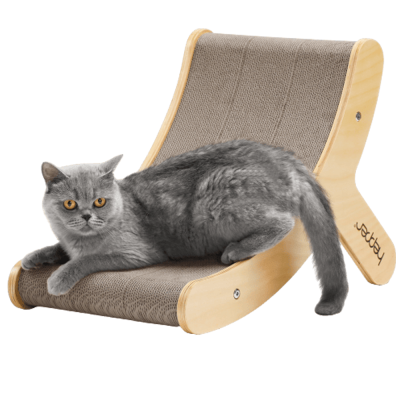
Hepper Hi-Lo Cat Scratcher
Check Price
Encourages Self-Play
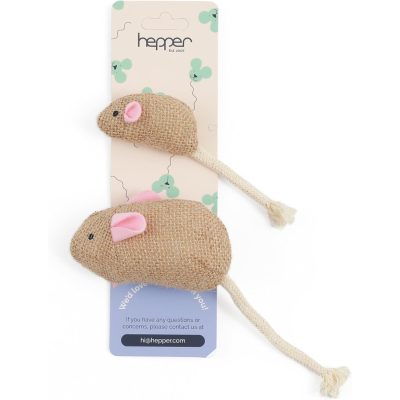
Hepper Catnip Mice Toy Set
Check Price
7. Make the Room Undesirable for Your Cat
If you make the room your cat is interested in uncomfortable for them, they should lose the desire to enter it (you can play music and spray vinegar so the room smells unappealing, for example). If the room is your bathroom, spill water on the floor, and they won’t be as interested in coming in, as they will want to avoid getting their paws wet.
Just be careful with this method. Don’t allow your cat to experience any discomfort or fear.
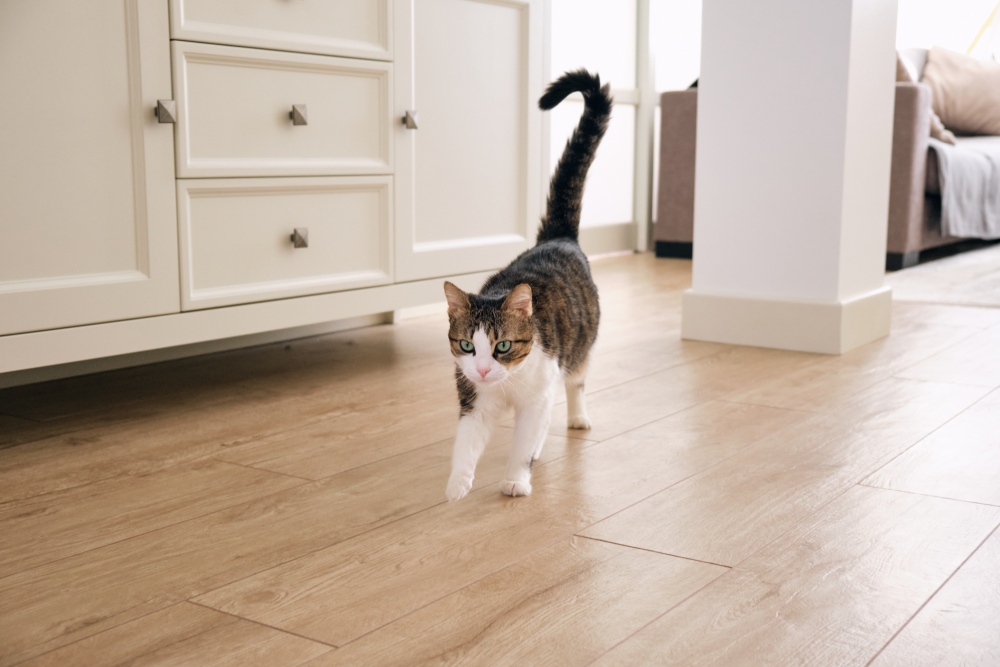
8. Only Use Positive Reinforcement
Never punish your cat. Any type of punishment that you inflict on your cat will only teach them to fear you instead of preventing any negative behavior.
Most of the suggestions in this article are designed to help prevent your cat from going into a room, but this needs to be accomplished without looking like you’re the one directing the various deterrents.
Lots of patience and love will go a long way when you’re training your cat.
9. Consider a Mild Sound Deterrent
Like most animals, cats are very sensitive to loud and sudden sounds. However, the one thing you need to keep in mind is that excessive noise may scare and stress your cat and cause them to become fearful, while some other cats will quickly get used to the noise. So, it’s best to be moderate and mindful of how your cat may react. If you make the noise yourself, the cat will associate the scary noise with you and not the door and room.
There are motion-detector sprays that emit a sound that will occur if your cat goes near it. But their disadvantage is that they may scare your cat and cause them to become stressed and nervous, which in turn, can lead to other undesirable behaviors, such as urinating or defecating outside of the litter box.
This method should also be only used as a last resort. The last thing you want to do is make your cat nervous or scared, causing them stress.
10. Consistency Is Key
Ensure you are consistent with your rules. Don’t allow your cat in the room sometimes and then get frustrated when they go in when you didn’t want them to. This will only confuse your cat, so your room should either be completely off-limits at all times, or you let them in whenever they want.
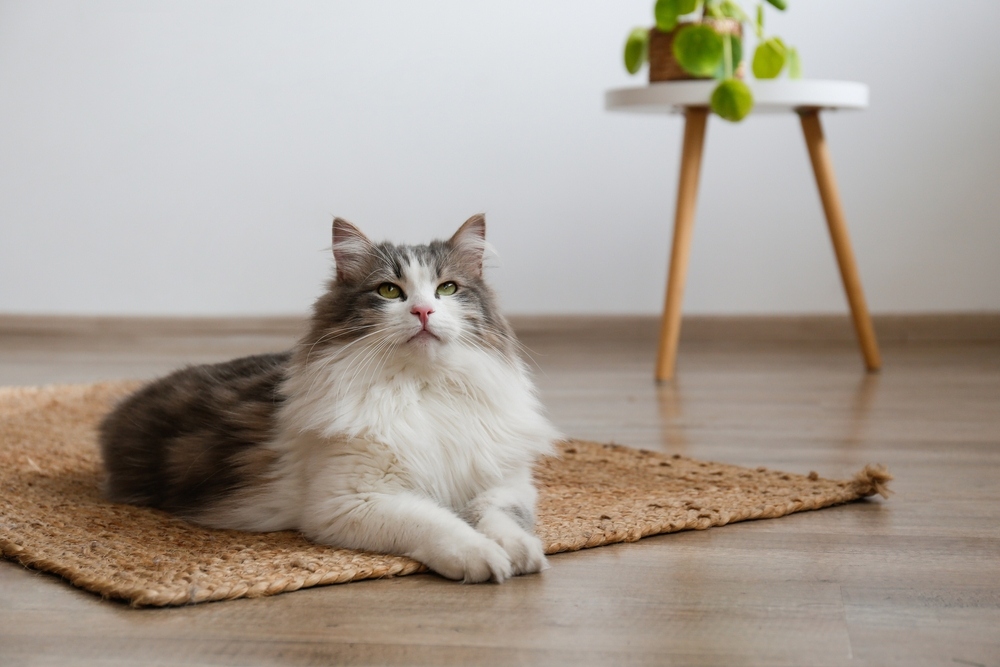

Conclusion
Don’t forget that any method you use to keep a cat out of a room should not cause stress, discomfort, pain, or fear to your cat. It goes without saying that harmful substances and toxic plants or essential oils should never be used.
Not every method listed here will work for every cat, so you will need to try out several different approaches until you find one that works for you both. Hopefully, we’ve given you a few ideas that will help keep your cat out of a room. Perhaps when it’s all said and done, your cat will end up forgetting all about that room and will be much happier in their own catified space.
Related Reads:
Featured Image Credit: catographer.mj, Shutterstock
